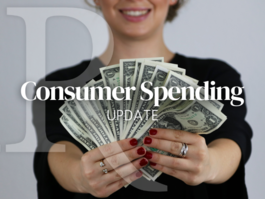Health Care Is a Major Voting Issue in Midterm Elections
Health care is a major factor when it comes to whom voters will choose at the ballot this midterm election, but they continue to look to the free market, not the government, to solve the woes of rising health care costs.
A new Rasmussen Reports national telephone and online survey finds that 87% of Likely U.S. Voters consider health care at least somewhat important to their vote in the upcoming midterm elections, including 55% who consider it Very Important. Just 12% say health care is not an important voting issue for them, with only two percent (2%) who say it’s Not At All Important. (To see survey question wording, click here.)
The biggest gripe for many Americans when it comes to health care is cost, and most voters (56%) think more free market competition between insurance companies will do more to reduce health care costs than more government regulation. Twenty-nine percent (29%) think more government regulation will do a better job of reducing costs, but another 15% are undecided. Survey results for this question have changed little since April 2013.
Seventy-nine percent (79%) of Republicans think more free market competition will do more to reduce health care costs than more government regulation, compared to 42% of Democrats and 48% of voters not affiliated with either major party. Overwhelming majorities across the political spectrum agree health care is an important voting issue for them this November, though.
Rasmussen Reports invites you to be a part of our first-ever Citizen-Sourced National Midterm Election Polling Project. Learn more about how you can contribute.
(Want a free daily email update? If it's in the news, it's in our polls). Rasmussen Reports updates are also available on Twitter or Facebook.
The survey of 1,000 Likely U.S. Voters was conducted on October 17-18, 2018 by Rasmussen Reports. The margin of sampling error is +/- 3 percentage points with a 95% level of confidence. Field work for all Rasmussen Reports surveys is conducted by Pulse Opinion Research, LLC. See methodology.
A number of Democratic gubernatorial and senatorial candidates from across the country have been stumping for single-payer health care as part of their 2018 midterm election platforms. Voters are now closely divided on whether the federal government should provide health care for everyone even though most believe their personal taxes will increase as a result.
Majorities of voters across the demographic board say health care is important to their vote in the upcoming midterm election and that more free market competition will do more to reduce costs than more government regulation.
But while an overwhelming 91% of voters who Strongly Approve of the job President Trump is doing agree that increased free market competition between insurance companies will do more to reduce health care costs, just 27% of those who Strongly Disapprove of the president agree. Fifty percent (50%) of these voters think increased government regulations will do more to reduce costs.
Only 48% who say health care is Very Important to their vote in November think more free market competition will do more to reduce costs, compared to 75% of those who don’t consider health care an important voting issue this November.
Most voters continue to give the health care they receive a positive rating, but few hold the nation’s health care system in high regards.
Despite its importance to their vote, just eight percent (8%) of all voters say Obamacare is their biggest concern among the problems facing the nation. By comparison, 27% feel that way about the Trump administration’s alleged ties to Russia.
A majority of voters continue to oppose the requirement that all Americans buy or obtain health insurance.
A year ago, 49% said a single-payer health care system was likely to increase the federal deficit.
Pluralities of voters also believe the cost of care will go up while the quality of care will go down under a single-payer system.
Additional information from this survey and a full demographic breakdown are available to Platinum Members only.
Please sign up for the Rasmussen Reports daily e-mail update (it’s free) or follow us on Twitter or Facebook. Let us keep you up to date with the latest public opinion news.
The survey of 1,000 Likely U.S. Voters was conducted on October 17-18, 2018 by Rasmussen Reports. The margin of sampling error is +/- 3 percentage points with a 95% level of confidence. Field work for all Rasmussen Reports surveys is conducted by Pulse Opinion Research, LLC. See methodology.
Rasmussen Reports is a media company specializing in the collection, publication and distribution of public opinion information.
We conduct public opinion polls on a variety of topics to inform our audience on events in the news and other topics of interest. To ensure editorial control and independence, we pay for the polls ourselves and generate revenue through the sale of subscriptions, sponsorships, and advertising. Nightly polling on politics, business and lifestyle topics provides the content to update the Rasmussen Reports web site many times each day. If it's in the news, it's in our polls. Additionally, the data drives a daily update newsletter and various media outlets across the country.
Some information, including the Rasmussen Reports daily Presidential Tracking Poll and commentaries are available for free to the general public. Subscriptions are available for $4.95 a month or 34.95 a year that provide subscribers with exclusive access to more than 20 stories per week on upcoming elections, consumer confidence, and issues that affect us all. For those who are really into the numbers, Platinum Members can review demographic crosstabs and a full history of our data.
To learn more about our methodology, click here.





